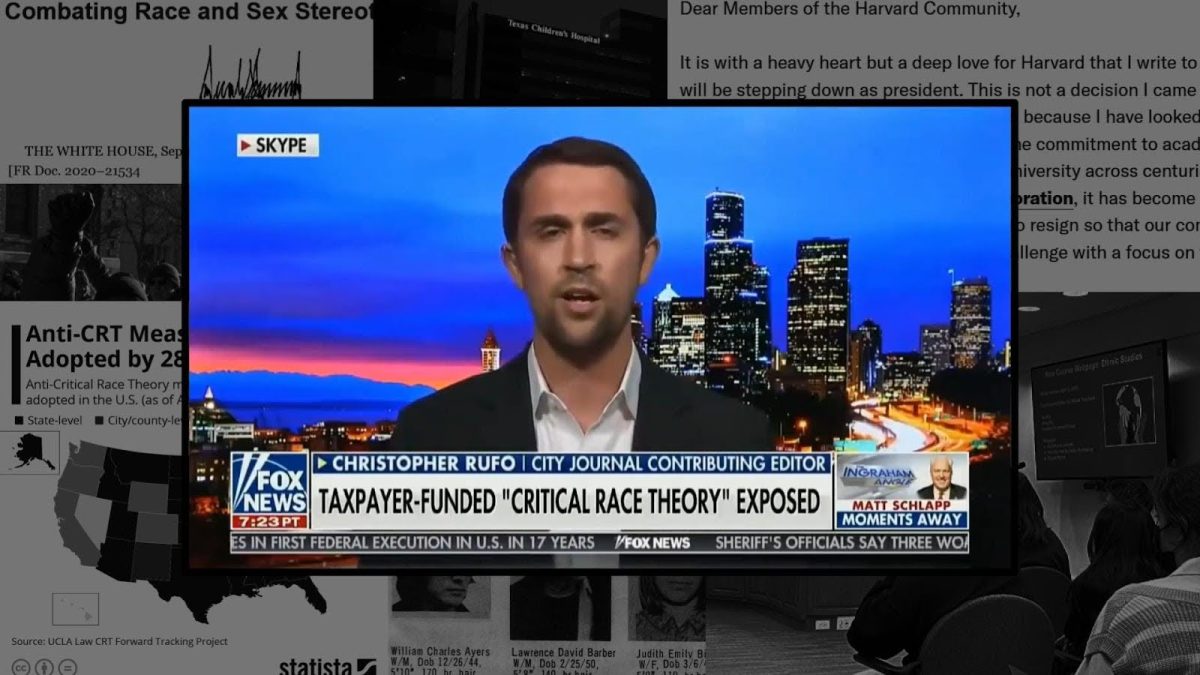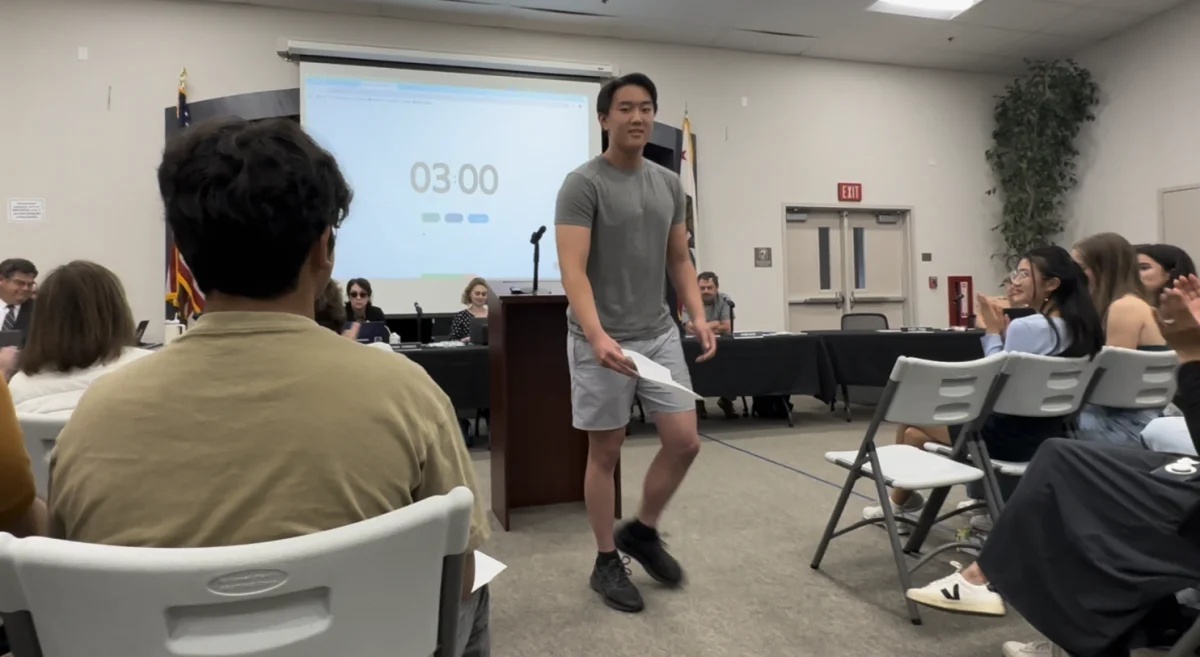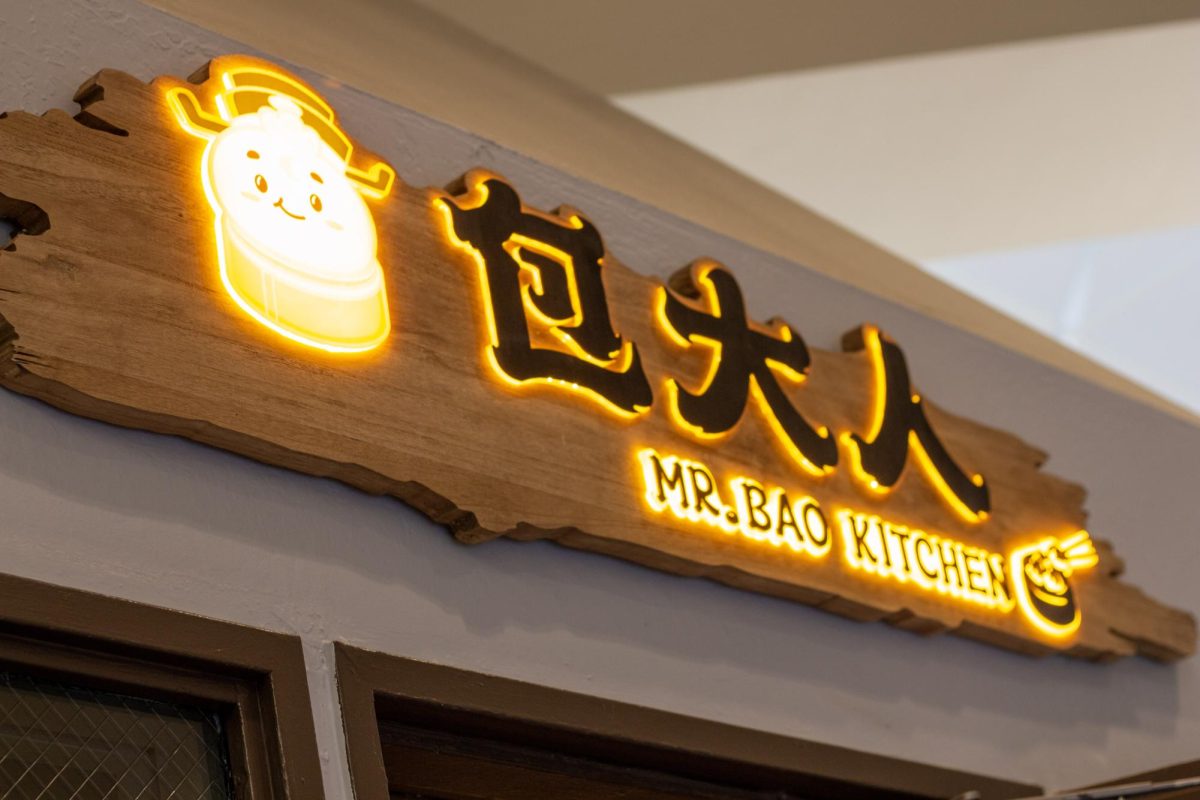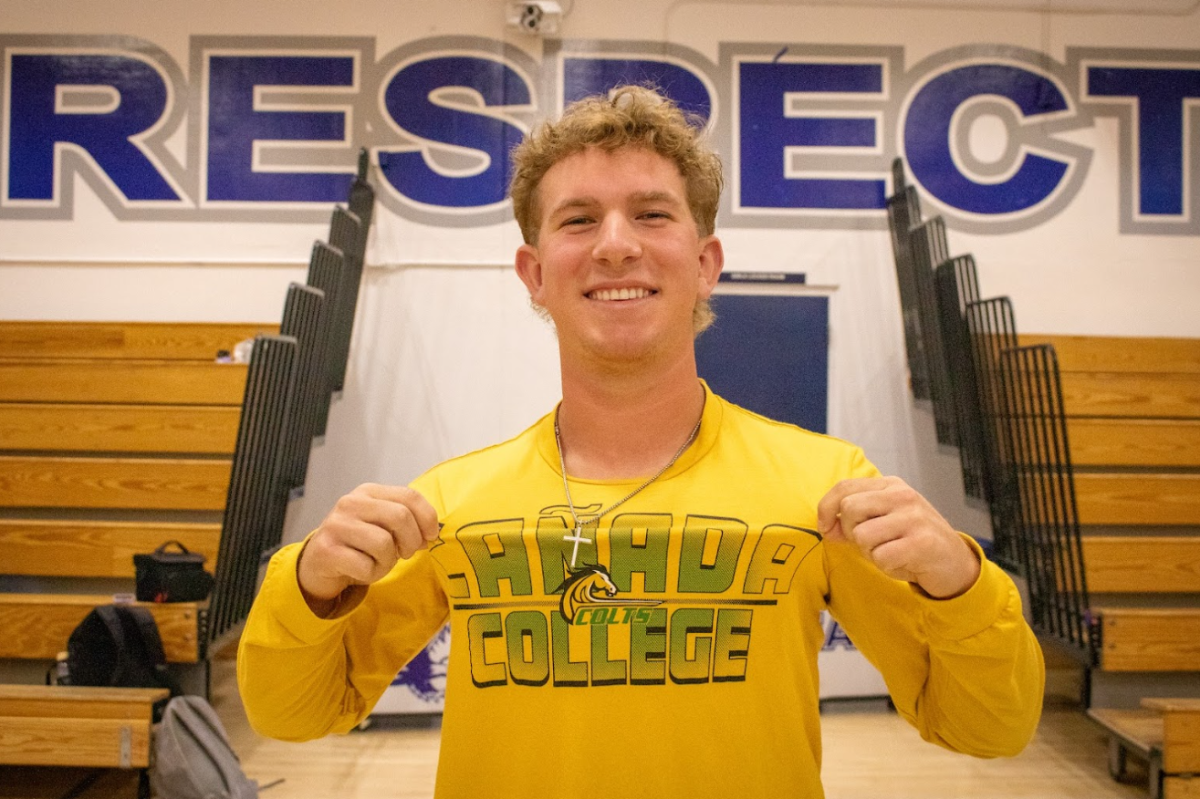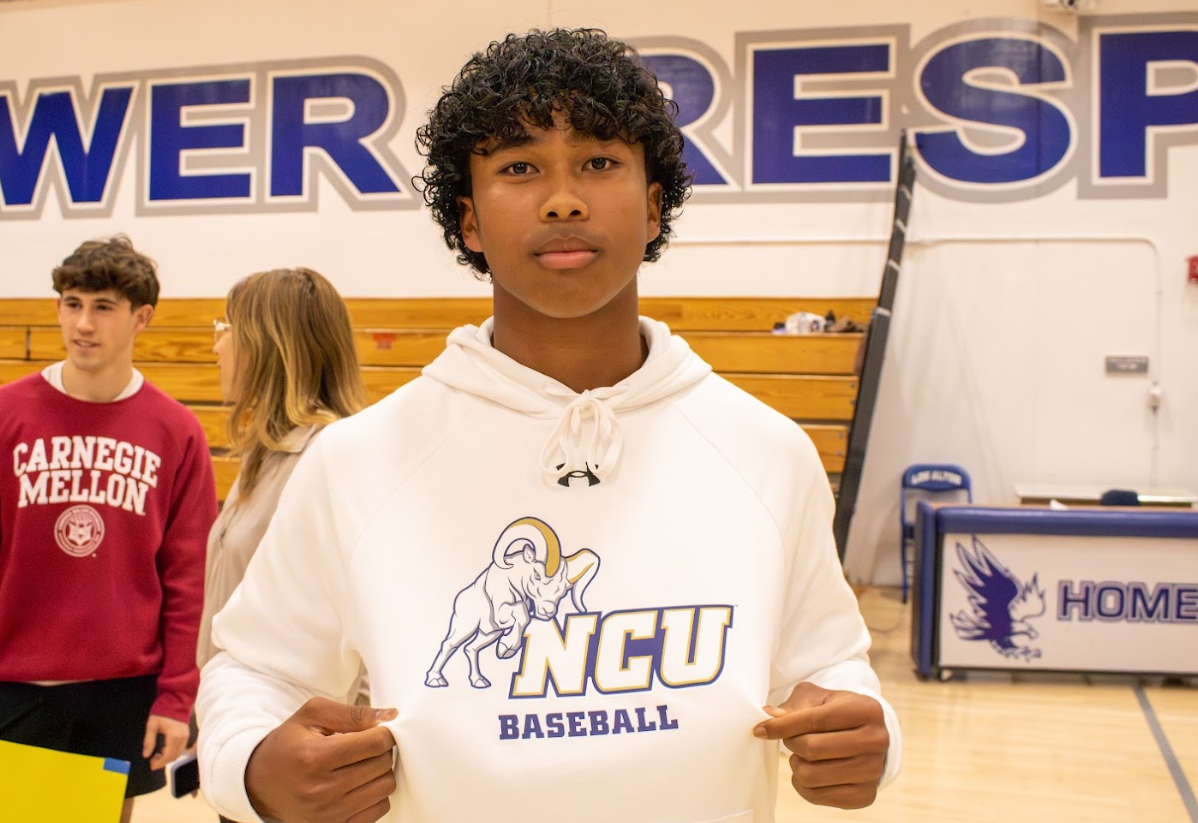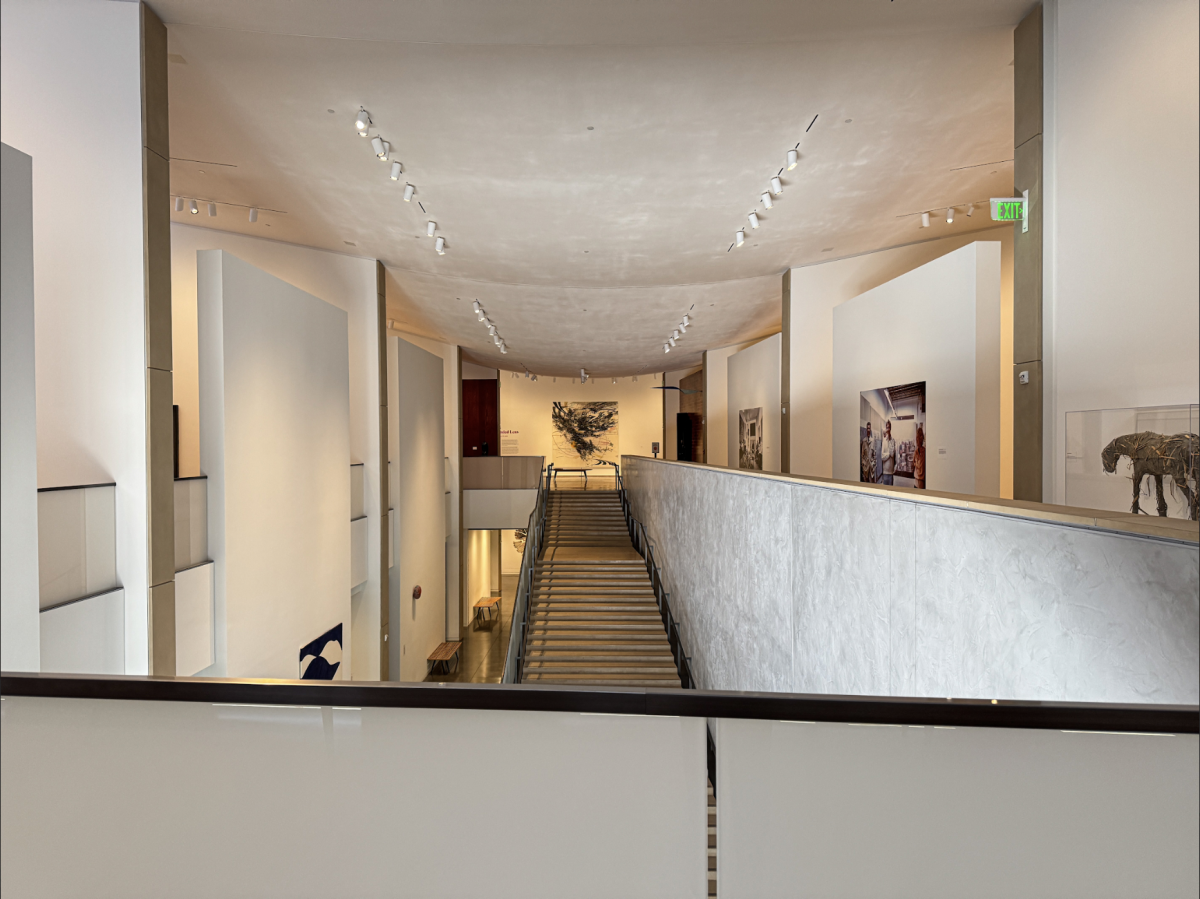For a man largely unknown outside of the right-wing media bubble and politics nerd circles, Christopher Rufo might be one of the most important people in America.
Rufo is why some people see a misinformed depiction of minorities and immediately think “critical race theory” (CRT). He’s why Donald Trump neutered diversity training in the federal government as president, why Claudine Gay is no longer the President of Harvard and why some corporations are newly scared of Diversity, Equity and Inclusion (DEI) policies. He’s had more of an impact on our society than most politicians could ever dream of.
He’s not a traditional conservative thinker, though — he refers to himself as an “activist” and “journalist,” two terms the Right have, to an extent, shunned; he has a Master’s degree in Liberal Arts and spent much of his life in Seattle, a leftist bastion. His origins aren’t exactly typical either: starting as a politically disinterested documentary filmmaker, his influence grew massively in 2020 as his online essays about homelessness, Black Lives Matter and liberal elitism caught steam among right-wing circles. He started appearing regularly on Fox News shows like the now-defunct “Tucker Carlson Tonight,” a show that attracted the viewership of over 3 million Americans at its peak. His rhetoric — continually and derisively name-dropping “critical race theory” and “diversity, equity, and inclusion” — slowly began to influence the American public’s discourse.
His stated goal, permeating everything from his television interviews to his longform journalism, is to beat back the march of societal liberalization and bring back an America where conservative ideas hold more power than progressive ones. Towards those means, he’s become an anti-woke warrior; supposedly a brave investigative journalist fighting for the truth, a man willing to be honest when nobody around him will. But behind that veneer is a grifter — someone obsessed with controlling the narrative, with demonizing his enemies by any means possible, with misleading the public if it gets him what he wants. His “journalism” is full of half-truths and outright lies, fabricated to prove a fictitious narrative of American society; his rhetoric is meticulously formulated to shift the goalposts of our nation’s political discourse.
And the most surprising thing — it’s worked. Chris Rufo might seem like he’s doing little more than preaching to the Fox News choir, but his work is more insidious than it first appears. Grifter or not, he’s a big deal. And we all ought to be paying attention.
Chris Rufo’s most notable work might be his targeted pressure campaign against former Harvard President Claudine Gay, who resigned as President earlier this month. Allegations of plagiarism — which were a significant reason for her ouster, in addition to a disastrous Congressional testimony on antisemitism — originated with an article on Rufo’s Substack blog, where he regularly posts news analysis pieces and original journalism. By the conclusion of the article that started it all, he makes his end goal clear: “In light of this troubling evidence, we call on Harvard’s Board of Overseers to conduct a full investigation into Claudine Gay’s academic integrity … If she has violated the code of academic conduct, she must resign — or get voted out by the board.”
My goal isn’t to make any claims about the veracity or importance of these allegations. In my opinion, Gay should have done the trivially easy job of rewording some of her dissertation to avoid running afoul of plagiarism rules, but a few unquoted sentences lifted from a cited paper or a definition taken from another academic aren’t the worst offenses. Anyway, the interesting part isn’t the allegations — it’s what Rufo did with them.
In a Wall Street Journal opinion article, he laid his game plan out in detail. After publishing the story, he orchestrated a series of events that pushed his allegations into the public consciousness: First, he let right-wing journalists and conservative activists pick up the story, allowing the story to begin circulating in a politically charged environment that already disliked Gay. Next, he forced the story into large journalistic organizations — mostly on the center-left — through sustained pressure and accusations of bias. Soon enough, Rufo’s plagiarism story was all over national news, and it didn’t take much longer for Gay to resign. It’s a truly remarkable strategy, marked by Rufo’s openness in sharing his play-by-play.
He might call himself a journalist, and he is in many respects, but his work goes against the fundamental principle of journalism: instead of leading with the facts and letting readers draw conclusions, he leads with conclusions and forces facts into their mold. Regardless of the significance of Rufo’s plagiarism accusations, it’s clear that exposing plagiarism problems in academia wasn’t his goal. He wanted to force Gay out of her job by any way possible. And he did.
Rufo has used this biased reporting strategy to legitimize everything from caricatures of transgender people to blanket critiques of diversity initiatives. Perhaps the best example of that strategy — using unobjective, unbalanced, sometimes factually incorrect assertions to back up predetermined conclusions — is his aforementioned book, “America’s Cultural Revolution,” a novel that stipulates that the violent, far-Left movements of the 1960s and ‘70s have manifested themselves today in academia and government bureaucracy, more insidiously but just as aggressive. Within that framework, critical race theory and Diversity, Equity and Inclusion are violent, white-hating ideologies from the Black Panthers and neo-Marxists, not academic disciplines and business policies designed to counteract social inequities. His novel, essentially a lengthy explanation of that narrative, is well-researched and often convincing, but it’s only convincing because it continually contorts the facts.
A small sample of those misleading statements: He states that the University of Pittsburgh “[implemented] racial quotas for admissions” in 2020, when they only had a “goal” of increasing the Black undergraduate population to 10 percent. (Also, such quotas were deemed unconstitutional in 1978.) He also claims that “local shopkeepers hung ‘Black Lives Matter’ placards and photographs of George Floyd … out of fear.” As a citation, he paraphrases a 1978 Soviet parable. No joke — his evidence for this claim is made up and 42 years out-of-date. In “America’s Cultural Revolution,” Rufo is so dedicated to proving the truth of one overarching story that he consistently ignores the truth to get there.
He’s used that same approach — craft a narrative and, if necessary, make up evidence that fits — repeatedly, pushing false narratives into the zeitgeist and forcing everyone else to play along. For example, he called on conservatives to begin referring to drag queens as “trans strippers” because “‘drag queens in schools’ invites a debate; ‘trans strippers in schools’ anchors an unstoppable argument.” In 2021, he tweeted his goal of “[having] the public read something crazy in the newspaper and immediately [thinking] ‘critical race theory.’” He’s in a constant war to reshape societal narratives around gender, race and history — and, right now, he seems to be winning.
Rufo is not unintelligent. His book, as noted, makes many salient points and is smartly written; it might have radicalized me if I didn’t have the political knowledge (and, frankly, the left-leaning views) that I do now. I can’t say I disliked reading his journalism, either — it’s well-written and well-done. That only makes his constant employment of factual inaccuracies more egregious; it only makes his cynical strategization more disgusting.
Perhaps in the eyes of someone who supports him, he’s simply beating back the violent liberalism that has dominated our society since the 1960s. But what he’s actually done is work systematically to strip trans kids of their rights, rewire the nation’s discourse to delegitimize discussions of race and defend human rights-abusing conservative policies with biased journalism and narrative battles. Rufo has outsmarted those fighting for social diversity and human rights. If we don’t want his reactionary dystopian dream to become our reality, we have to fight back.
In saying that we should “outsmart Chris Rufo,” I don’t think we should emulate him; I don’t believe that anyone should stoop to his level. If someone on the left utilized the same strategies as Chris Rufo, we’d end up with somebody who ultimately isn’t that much better. But when liberals sit back and let his strategies go unchallenged, sometimes piling on by complaining about so-called “DEI initiatives” or CRT unfairly, they’re contributing to the bigotry they’re supposedly passionate about fighting. We need to see through Chris Rufo and those like him on the right — because, in a real sense, our society depends on it.



